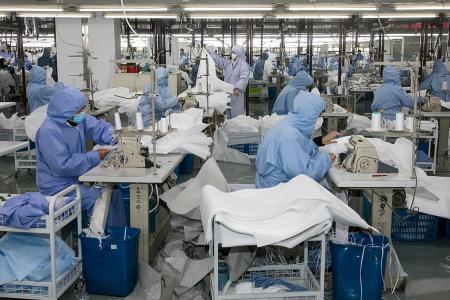Novel coronavirus case numbers ‘stabilising’: WHO
World Health Organisation calls for caution amid stabilisation of number of cases
GENEVA: The number of cases of the deadly coronavirus being reported on a daily basis in China is "stabilising", the World Health Organisation (WHO) said on Saturday.
The UN health agency said this was "good news" but cautioned that it was too early to make any predictions about whether the virus might have peaked.
The death toll surged past 800 in China yesterday, overtaking global fatalities in the 2002-03 severe acute respiratory syndrome epidemic. More than 37,000 in China have been infected.
"There has been a stabilisation in the number of cases reported from Hubei," Mr Michael Ryan, head of WHO's health emergencies programme, said at a briefing in Geneva.
The central Chinese province of Hubei has been at the epicentre of the outbreak and has been placed under lockdown.
"We are in a four-day stable period where the number of reported cases hasn't advanced. That is good news and may reflect the impact of the control measures that have been put in place," Mr Ryan said.
But he added that it was "very early to make any predictions".
WHO chief Tedros Adhanom Ghebreyesus said the trend was "not really accelerating" but also called for "caution". He warned against misinformation, saying it made the work of healthcare staff harder.
"I would also like to speak briefly about the importance of facts, not fear," Dr Tedros added.
"People must have access to accurate information to protect themselves and others."
He said the false information can spread confusion and fear, the BBC reported.
"At the WHO, we are not just battling the virus, we are also battling the trolls and conspiracy theories that undermine our response," he added.
"As a Guardian headline says today, 'Misinformation on the coronavirus might be the most contagious thing about it'."
Epidemiologist Adam Kucharski said in the Guardian that the best way to fight fake news about the virus is to "treat them like a real-life virus".
Asked about a planned WHO-led international mission to China, he also said a list of names had been submitted to the Chinese authorities and the team leader would be travelling there today or tomorrow.
"The rest of the experts will also follow after that," he said.
Asked if the mission would include members of the US Centres for Disease Control and Prevention (CDC), he said: "I hope so".
China has been critical of measures taken by the US in response to the virus and has so far rejected an offer of assistance from the CDC.
WHO said demand for masks, gowns, gloves and other protective gear has risen up to 100-fold and prices have soared, producing a "severe" disruption in global supply.
Dr Tedros said he had spoken to manufacturers and distributors to ensure supplies for those who need them most, with healthcare workers a priority, followed by the sick and those caring for them. - AFP, REUTERS
Get The New Paper on your phone with the free TNP app. Download from the Apple App Store or Google Play Store now



